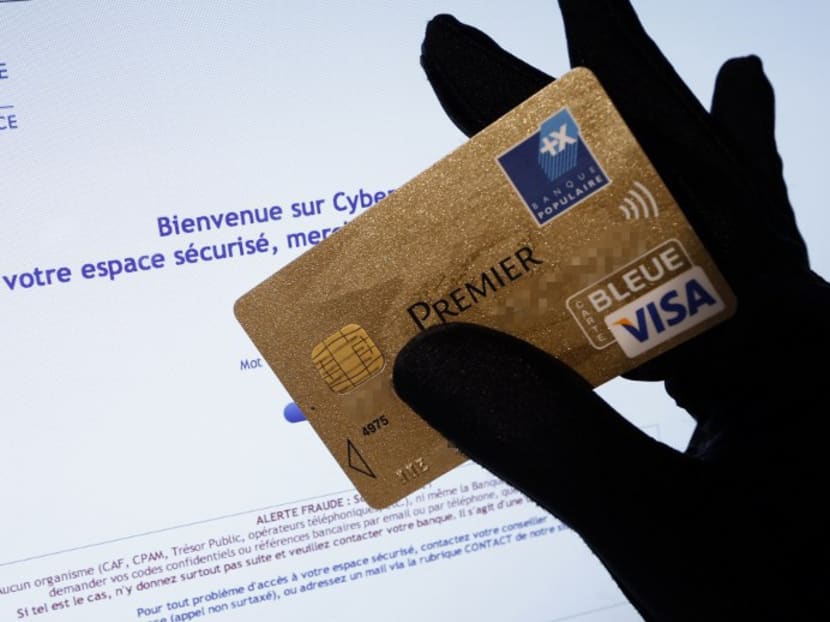A third of S’pore consumers fell victim to card fraud
SINGAPORE — More than one-third of consumers in the Republic were victims of card fraud in the past five years — the sixth-highest worldwide and third-highest in the Asia Pacific region, showed a study by payments company ACI Worldwide on Wednesday (July 13).
SINGAPORE — More than one-third of consumers in the Republic were victims of card fraud in the past five years — the sixth-highest worldwide and third-highest in the Asia Pacific region, showed a study by payments company ACI Worldwide on Wednesday (July 13).
The ACI Worldwide Global Consumer Fraud Survey, which polled 6,000 respondents in 20 countries, found that 36 per cent of the 303 people surveyed in Singapore experienced unauthorised activity on their debit, credit or prepaid cards in the past five years. This is an 8 per cent rise compared with the same study in 2014.
This level is “moderately high” and may be a reflection of fraud attacks and data breaches targeted at more affluent regions including Singapore, noted the report.
“Consumers in Singapore do not engage in as much risky card behaviour as their Asia-Pacific counterparts. However, this does not allow for complacency … As attacks may be targeted at affluent markets such as in Singapore, India, Australia and New Zealand, security must always be a priority among financial institutions, merchants and consumers,” said Ms Giselle Lindley, APAC solution and fraud consultants leader, payments risk solutions and big data at ACI Worldwide.
The report comes at a time when the spotlight is once again on the issue of card security, amid a rise of new payment services such as Apple Pay, Android Pay and Samsung Pay.
Globally, Mexico was found to have the highest rate of card fraud, with 56 per cent of consumers surveyed falling prey to such incidents. This was followed by Brazil and the United States at 49 per cent and 47 per cent, respectively.
Australia, which topped the Asia-Pacific rankings, came in fourth at 40 per cent, while India rounded off the top five with 37 per cent, ahead of Singapore.
“Card fraud rates are on the rise in the majority of countries included in the survey. The data shows that consumer education and customer service remain a challenge for financial institutions globally, as risky behaviour has a direct correlation to experiencing fraud,” said Mr Ben Knieff, senior research analyst at research firm Aite Group.
Other than India, all countries in the top five saw the rate of card fraud rise compared with the same study in 2014. This is due to “risky” consumer behaviour, such as leaving smartphones unlocked when not using them, banking or shopping online on computers without security software and responding to emails or calls asking for bank details.
The study found that fewer Singapore consumers engaged in such behaviour compared with countries such as Thailand, India and Indonesia. However, when it came to the share of consumers throwing papers or documents with bank account details in the rubbish, the Republic was at the top in the Asia-Pacific region, at 35 per cent.
And while those in Singapore are most concerned about identify theft, data breaches resulting in compromised account numbers and online banking fraud, the study found 13 per cent of them lacked confidence in the ability of financial institutions to prevent fraud — the highest among Asia Pacific countries.
“Apart from having strong regulations and technology, financial institutions also need to boost their fraud monitoring and customer aftercare to assure consumers and build their trust especially after fraud incidents have taken place,” said Ms Lindley. “It is the customer-service-oriented message that goes a long way towards improving consumer confidence.”







